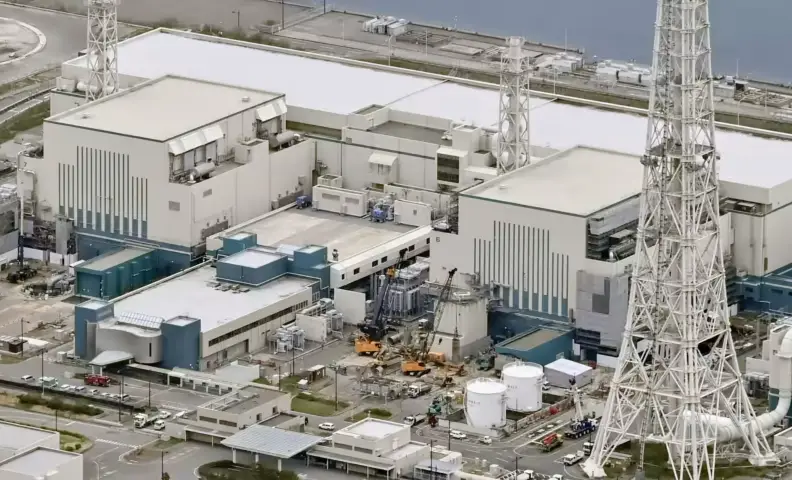

The Fukushima nuclear power plant (Photo: IanBremmer/Twitter)
Japan is encouraging people to come back to Fukushima, the site of one of the world’s worst nuclear disasters.
The government has lifted the evacuation order for Fukushima town for the first time since March 2011 after the nuclear disaster struck the Fukushima Daiichi nuclear power plant following an earthquake and a tsunami, reports news agency Koyodo.
The local municipality is preparing for some of the residents to come back.
Due to radiation fears, Fukushima had become a ghost town with overgrown weeds and crumpled buildings over the past 11 years.
The Fukushima nuclear disaster, which was termed the world’s second-worst disaster after Chernobyl, saw nearly 18,500 casualties – a combination of deaths from the earthquake and tsunami. More than 1,60,000 people had to be evacuated from the town due to radiation fears.
With a global energy shortage and rising prices, Japan has embarked upon an ambitious plan to restart its shut nuclear reactors. In a major reversal of policy, Japan also plans to develop new nuclear technologies with a view to not only capping energy prices but also generate green energy and decarbonise its energy sector.
The Futaba municipality in Fukushima Prefecture town, is among 11 municipalities which have cancelled the evacuation orders. “Although residents are now allowed to return home, over 80 per cent of the municipality, by acreage, remains designated as “difficult-to-return” zones”, reports Kyodo.
Japan has been steadily opening up the area for residents.
It has opened up a police box with one police officer. It also inaugurated a new town office for the municipality.
With decreasing radiation levels, the government had allowed people to enter some areas but did not allow them to reside.
Even now there is scepticism and fear among some of the residents about moving back. Kyodo says that the government’s preparatory programme for residents saw just 85 people from 52 households who were prepared to return. Even as the Futaba municipality wants to increase its population to 2,000 by around 2030, just 11 per cent people showed their willingness to return.
There are other challenges that remain. The government will still have to decontaminate locations where people plan to return.
Portions of the town which have been reopened for habitation are located near JR Futaba Station that has many commercial and public facilities.
Read More: Faced with threat from China, is Japan shredding its pacifist past?
Will China’s Central Military Commission be a target under Japan’s counter strike capability
Kobbi Shoshani, Consul General of Israel to Midwest India, Mumbai on Wednesday condemned the terrorist…
Amjad Ayub Mirza, a political activist from Pakistan-occupied Jammu and Kashmir (PoJK) currently based in…
Following Tuesday's terror attack in Pahalgam that had left Kashmir Valley in deep mourning and…
Prime Minister Narendra Modi's visit to Jeddah saw the signing of several MoUs in various…
India and the US have finalised terms of reference for the ongoing negotiations for completing…
Moments after his arrival in Delhi early Wednesday, Prime Minister Narendra Modi took a briefing…